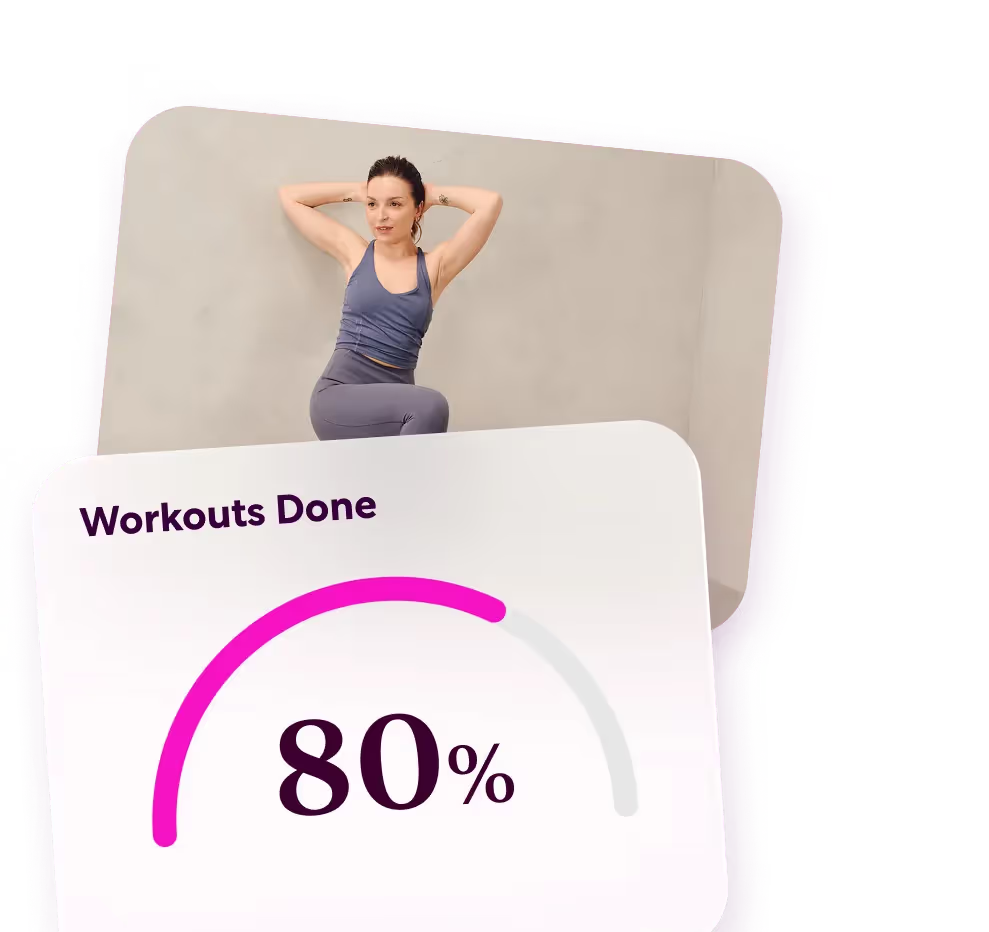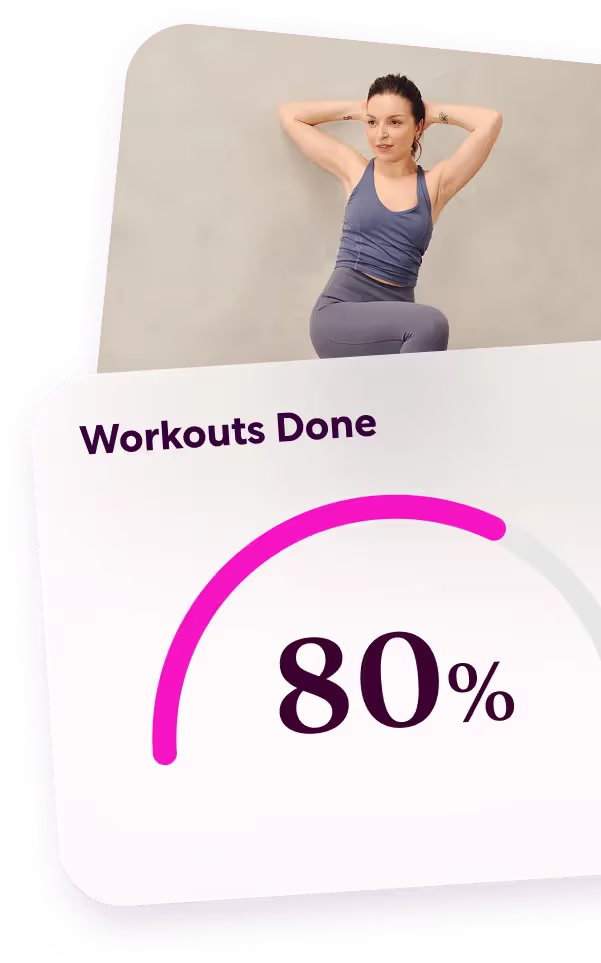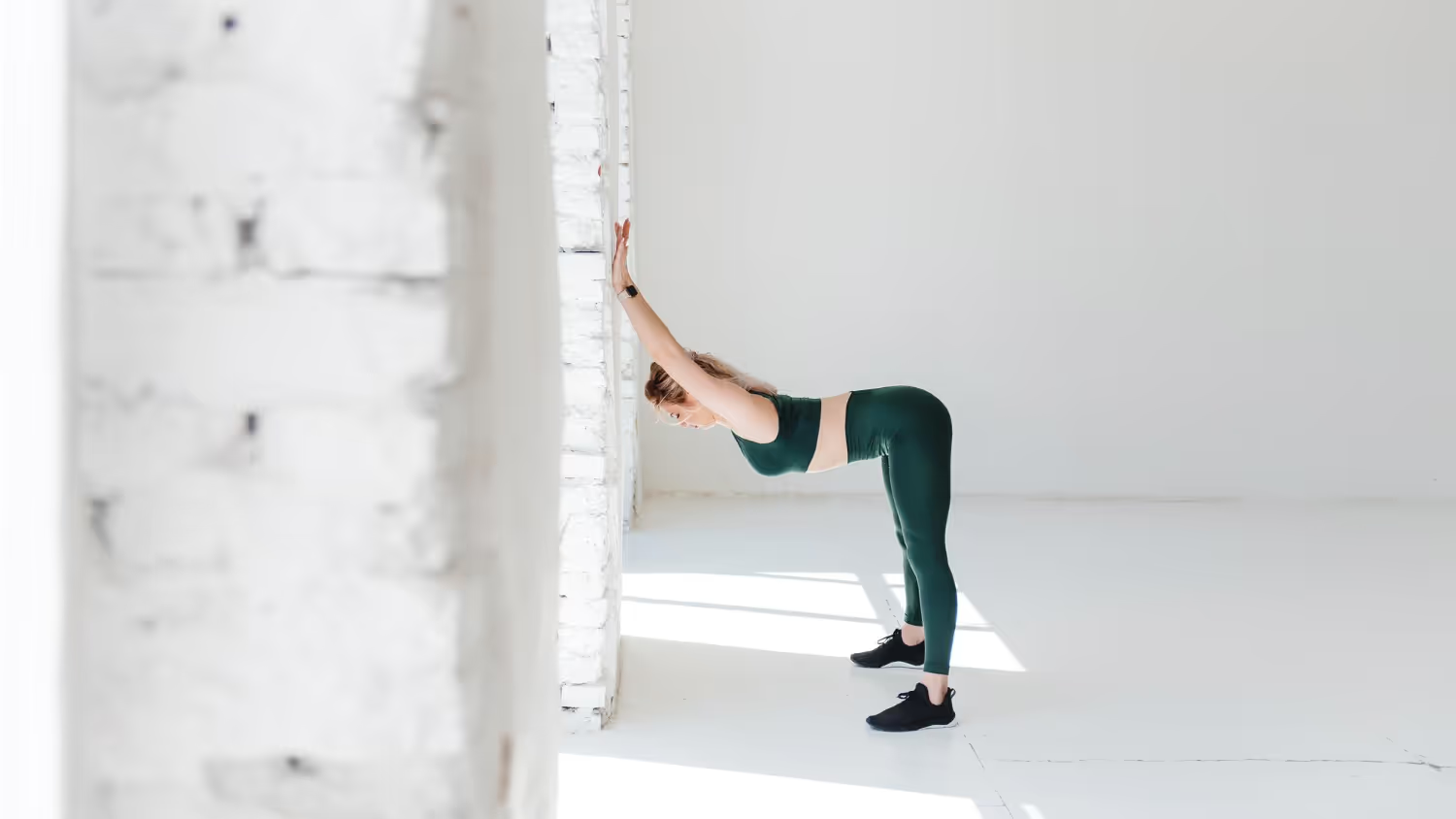15 mins Pilates on your terms – anytime, anywhere.
Get your plan
15 mins Pilates on your terms – anytime, anywhere.
Get your plan
Have you ever wondered if you could do Pilates every single day? Maybe you've fallen in love with how strong and flexible you feel after class, or you're curious about making it your go-to daily workout.
But before you roll out your mat and commit to daily practice, let's explore the awesome benefits and possible downsides.
Is It Safe to Do Pilates Every Day?

Developed by Joseph Pilates in the early 20th century, Pilates is a systematic approach to movement that emphasizes core strength, flexibility, and mind-body connection. Unlike high-intensity workouts that focus on burning calories, Pilates prioritizes precision, control, and proper alignment.
Physical Benefits of Daily Practice
With daily Pilates practice, your muscles become stronger, especially the deep core muscles that help protect your spine. Many people notice they stand taller and move more smoothly after just a few weeks of consistent practice.
Understanding Recovery in Low-Impact Workouts
Even though Pilates is a more gentle form of exercise compared to weight training, your body still needs time to bounce back. The good news is that Pilates is low-impact, meaning it doesn't put much stress on your joints, so you can often practice it more frequently than other types of exercise.
There are also more gentle and intensive forms of Pilates, for example. Like Reformer Pilates and Wall Pilates.
While your muscles do indeed repair and get stronger during rest periods, mixing intense sessions with gentler ones so you can do Pilates every day is a good idea.
Signs of Overtraining and When to Rest

Of course, even if you could technically do Pilates every day, this doesn’t mean you should always do it.
Your body has clever ways of telling you when it needs a break. Watch out for these warning signals: unusual tiredness that lasts all day, muscles that stay sore longer than usual, or feeling less excited about your workouts.
These signs are your body’s way of saying that you should take a day off and slow down.
Advantages of Practicing Pilates Daily
We can’t blame you for wanting to see what will happen to your body if you practice Pilates every day.
After each session, practitioners may feel more energized, aligned, and mentally focused. These positive effects naturally lead to the question of whether more frequent practice could amplify these benefits.
Improved Flexibility and Posture
Pilates works wonders for your flexibility, but not in the way you might think. Instead of forcing your body into extreme stretches, Pilates teaches your muscles to work together in harmony. This leads to natural, lasting flexibility that helps in everyday life, especially among menopausal women.
Your posture gets better, too. Many women today spend hours hunched over computers or phones, but daily Pilates helps counter these effects. It's like having an internal reminder to stand tall and sit straight.
Enhanced Core Strength and Stability

The core isn't just about getting six-pack abs. It's about building a strong foundation for all your movements. Daily Pilates targets deep core muscles that other workouts might miss. These muscles work like a natural corset, supporting your spine and helping prevent back pain.
Your core muscles provide stability and strength for everything you do, from carrying groceries to playing sports.
Stress Relief and Mental Clarity
One of the coolest things about daily Pilates is how it helps your mind as much as your body. The focus on breathing and precise movements creates a moving meditation. Many women find their daily Pilates practice becomes their "me time," a chance to clear their heads and reset.
Potential Risks of Daily Pilates

While Pilates is generally safe, doing any exercise every day comes with some things to think about.
Muscle fatigue might become an issue if you're not careful. When you're tired, your form might get sloppy, which could lead to strain or injury. Not to mention, doing the same movements daily might stress certain body parts too much.
Overuse Injuries and Muscle Fatigue
Even gentle exercises can lead to overuse injuries if you're not careful. The most common issues come from doing too much, too soon, or using incorrect forms.
Lack of Cross-Training for Balanced Fitness
Doing only Pilates every day might mean missing out on other important types of exercise. Your body needs different kinds of movement, just like your diet needs different types of food. Adding cardio and strength training to your routine, like CrossFit or Yoga, helps create a more balanced and well-rounded fitness program.
Importance of Listening to Your Body
Listen to your body's signals. If something feels off or painful, that's your body's way of asking for a break.
Your body is incredibly smart at telling you what it needs. Some days, you might feel energized and ready for a challenging workout. On other days, you might need something gentler.
Learning to understand these signals is crucial for maintaining a healthy daily practice.
How to Start a Daily Pilates Routine

Making Pilates part of your daily routine doesn't mean every session needs to be intense or lengthy. Here's how you structure your week.
Setting Realistic Goals for Consistent Results
Start small and build up gradually. Begin with 15-20 minutes daily rather than jumping into hour-long sessions.
But if we’re being honest, the truth about whether you can do Pilates every day isn't one-size-fits-all. Some people thrive on daily practice, while others might need more rest days. The key is finding what works best for your body and lifestyle.
Choosing Between At-Home and Studio Workouts
Both home and studio practices have their perks. Studio classes offer expert guidance and proper form checks, while home practice gives you flexibility with timing and comfort. Many people find a mix of both works best.
Regardless of your choice, we recommend finding a qualified instructor who can check your form and give you personalized advice. They can help you modify exercises based on your fitness level and any physical limitations you might have.
Reverse Health offers personalized guidance from experts with years of experience in nutrition and fitness.
Essential Equipment for Daily Practice
First things first: create a dedicated space for your practice. You don't need much room to do Pilates, especially at home. You just need enough to place a basic, high-quality mat and freedom of movement. Having this space ready makes it easier to stick to your daily routine.
Small props like resistance bands, magic circles, or small balls can add variety to your workouts. These tools help target different muscle groups and keep your routine interesting.
Recap: Should You Do Pilates Every Day?
Can you do Pilates every day? The straight answer is simple. Yes, you can do Pilates every day. But, it’s important to keep in mind certain conditions first. Consistent Pilates practice can bring wonderful benefits to your body, especially as you age. However, it’s equally important that you pay attention to how your body reacts.
The key to success is finding a balanced approach that works for your body and lifestyle. Some days might call for a full hour of challenging exercises, while others might need just 15 minutes of gentle movement. What matters most is consistency and mindfulness in your practice.
With patience and dedication, daily Pilates can become a rewarding part of your life, helping you build strength, flexibility, and overall well-being.
15 mins Pilates on your terms – anytime, anywhere.
Get your plan
Sources
FAQs
Can you safely do Pilates every day?
Yes, Pilates can be practiced daily as it focuses on low-impact movements, but it’s important to listen to your body and alternate between intense and restorative sessions.
What are the benefits of doing Pilates daily?
Daily Pilates can improve flexibility, core strength, posture, and overall body awareness, while also reducing stress and promoting mental well-being.
Are there risks to doing Pilates every day?
Overtraining without proper recovery may lead to muscle fatigue or strain. Incorporating variety and rest is key to avoiding injuries.
How long should a daily Pilates session last?
Sessions can range from 10 to 60 minutes depending on your fitness level and goals. Shorter sessions are ideal for daily practice.
Can beginners practice Pilates every day?
Yes, but beginners should start with shorter, beginner-friendly sessions to build strength and avoid overexertion.







